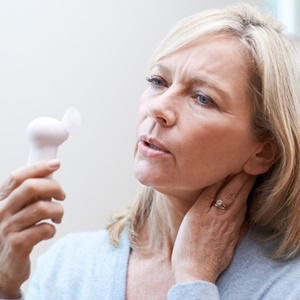
Dawn Brooke, the British woman who holds the title of “The World’s Oldest Natural Mother”, made headlines when she gave birth to a healthy son at the age of 59 towards the end of her menopause. Like many others going through “that time of life”, she had simply stopped worrying about taking precautions. Her husband Ray wasn’t worried either.
Dawn is one of thousands of “hot-flush mommies”, a new term used to describe women who fall pregnant during menopause.
It’s a fair and commonly-held belief that once women reach middle age, their chance of falling pregnant reduces significantly. A large number of studies show that after a woman reaches 40 it becomes harder and harder to bring a healthy foetus to full term. When we reach menopause, most of us believe that it is the end of our childbearing years for sure and that there is consequently no more need for contraception. Things, we believe, have come to a full stop.
Countless women and their partners think that once menopause has begun they are in the all clear and can never be mommies or daddies, at least naturally, ever again. Hot flushes have started (sometimes in women as young as 42), women begin to feel “dry”, moods fluctuate and periods become sporadic, eventually coming to a halt. Women now focus on managing menopause and making choices around HRT and stop considering contraception.
Unplanned pregnancy during menopause can be a crisis for many women. Although Dawn and Ray were initially shocked, but then delighted, studies show that around 37% of women who fall pregnant over the age of 40 decide to abort.1 They are the second-largest age grouping to abort pregnancy, only 2% less than the under 20’s group. Older women are also far more likely to miscarry. Dealing with a pregnancy or having a child in your late forties or early fifties is no laughing matter. It’s certainly something that needs to be planned, assessed and prepared for. Age and the energy to parent are always an issue.
When does menopause actually begin?
On average most women don’t enter menopause until they are in their early 50’s2 and then it lasts several years. It is during the period between the onset of menopause and its end in the mid to late 50’s when a group of shocked mommies (and daddies) can realise that they are pregnant. Just when they were sure their days of dirty nappies were over, things start up again because they stopped using contraception.
How do I know when it is safe?
The conservative view is that you are only in the clear once your periods have stopped consecutively for a year and your doctor confirms that you have gone through menopause fully. They will probably determine this using a Follicle-stimulating hormone (FSH) blood test. You need to be 100% sure that your body is not producing any eggs at all and that nothing is left to be fertilised. Only then can you say you are through menopause and safely ditch the contraception.
Contraceptive option for menopausal women
Many gynaecologists are prescribing the intra-uterine progestogen-releasing system, known more popularly as the MIRENA® for menopausal women. In addition to preventing pregnancy it also offers hormonal support during menopause. It is currently used by more than three million women worldwide.
Described as the world’s most effective contraceptive3, it is also indicated to support hormonal balance and the protection of the uterus against the effects of oestrogen during HRT.4 Women have a great concern about the oestrogenic effects of HRT these days and the MIRENA®, which lasts for five years and is reversible, offers proven protection. (Healthcare Communications press release adapted by Health24, September 2011)
References
(1) Conceptions: age of woman at conception (% terminated by abortion) 1991 onwards: Population Trends 110. Office for National Statistics. E & W, 2001
(2) Wallace, WH and Kelsey, T.W. (2004) Ovarian reserve and reproductive age may be determined from measurement of ovarian volume by transvaginal sonography. Human Reproduction, Vol. 19. No 7, 1612-1617
(3) Five Years Experience With a Small Intracervical/Intrauterine Levonorgestrel-Releasing Device, Contraception, 2005
(4) Mirena® package insert.
Read more
Visit our Contraception Centre
Learn more about menopause




 Publications
Publications
 Partners
Partners










